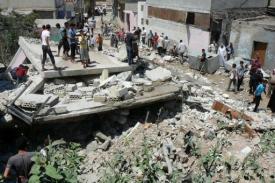
(Photo from Al-Borsa News)
Egypt has adopted several measures to improve the country’s business climate “and most importantly, the government’s initiative to rationalise the legal framework of investing in the country”, European Union (EU) Ambassador to Egypt James Moran told the Daily News Egypt in an interview on Sunday.
In an attempt to attract investments, the government has recently approved an investment law, which prevents third parties from challenging contracts between the government and investors.
These “positive” signs will encourage business people to come and invest in Egypt, Moran said, stressing on the importance of more transparent and comprehensible investment regulations and legal certainty in order to boost the country’s economic growth.
Commenting on the government’s efforts to increase investments, Moran said: “We hope so much that the momentum that has started now would be continued,” adding that the EU is looking forward to being informed of the details of future economic programmes.
Moran said a delegation of businessmen from the EU will visit Egypt to discuss potential opportunities after presidential elections are over, noting that the last business delegation to visit the country was in 2012.
According to Moran, Egypt’s target to achieve economic growth registering 3% of GDP by the end of the current fiscal year is attainable; he stressed that the benefits of growth will be shared “not with the few, but with the many”.
Moran expressed his willingness to help Egypt achieve democracy, confirming that the EU does not support a presidential candidate, but rather “we support the democratic transitions”.
The EU is funding several projects in Egypt, such as the Improved Water and Waste Water Services Programme, which aims to improve the country’s water plants. It contributed €57m to the project, which is projected to cost €598m.
In September 2013, the Federation of Egyptian Chambers of Commerce announced the launch of eight new regional projects, in the sectors of food industry, tourism, textile, solar energy, school modernisation and environment; the projects are valued at EGP 250m and funded by the EU.



